Wednesday Night’s Debate Was the End of the Default Male Candidate
In one five-minute exchange, the era of the \201cwoman candidate\201d came to a close.
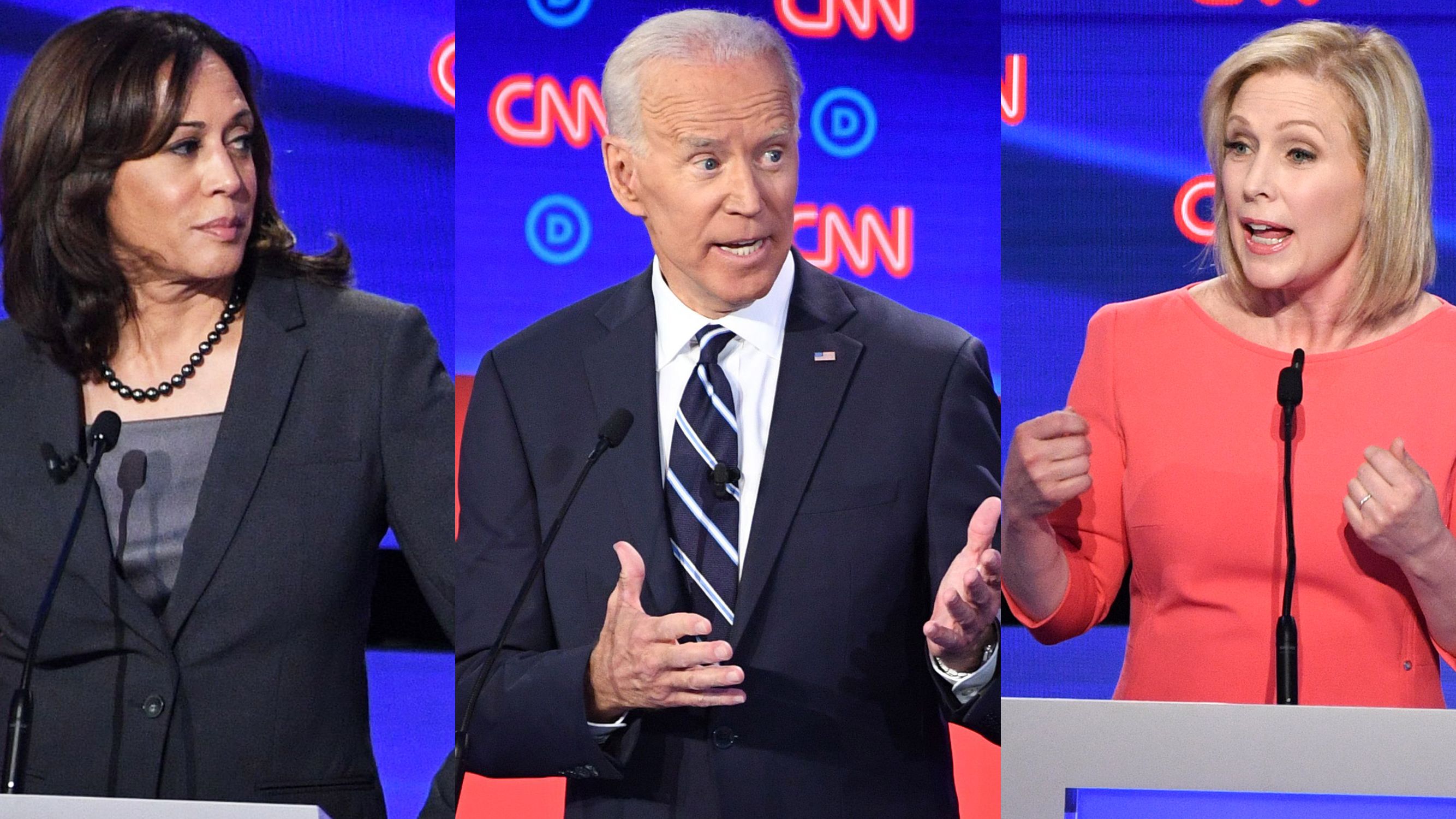

By the time the most telling moment of Wednesday night’s Democratic Debate arrived, most people at the Kamala Harris watch party in downtown Iowa City had headed for the door.
The debate—part two of round two—was in its fourth hour, and almost all of the twenty or so attendees at the dark, aggressively air-conditioned gay bar had had enough. Six hours, two nights, and twenty candidates is a lot.
But then, two women went in on Joe Biden.
It began with a question about the gender pay gap, and about Sen. Kamala Harris’s plan to fine companies that don’t pay women equally. The question was first posed to entrepreneur and long-shot candidate Andrew Yang. Then, when Sen. Kirsten Gillibrand was asked if she thought Harris’s plan would work, she called for “a broader conversation about whether we value women, and whether we want to make sure women have every opportunity in the workplace.”
And then she turned to Biden.
“When the senate was debating middle class affordability for child care, he wrote an oped. He voted against it, the only vote… he believed that women working outside the home would ‘create the deterioration of family.’ He also said that women who were working outside the home were ‘avoiding responsibility.’ And I just need to understand, as a woman who’s worked my entire career as the primary wage earner, as the primary caregiver… am I, serving in Congress, resulting in the deterioration of family because I had access to quality, affordable day care? I just want to know what he meant when he said that.”
Biden’s response: That was a long time ago, and he didn’t want to give tax breaks to parents who were making a comfortable income.
Stay In The Know
Get exclusive access to fashion and beauty trends, hot-off-the-press celebrity news, and more.
Gillibrand didn’t let up, running through stats on how many women work outside the home, and how, for most of them, their income is essential to their family’s survival. Biden, visibly irritated, touted his record on preventing sexual violence, and implied that Gillibrand was being disloyal and opportunistic:
“I don’t know what’s happened. I wrote the Violence Against Women Act… I came up with the It’s On Us proposal to make sure that women were treated decently on college campuses. You came to Syracuse University with me and said it was wonderful… I don’t know what’s happened except you’re now running for president.”
Then, Harris got in on the action.
“Listen, I mean, talk about now running for president and changing your position: on the Hyde Amendment, Mr. Vice President, where you made a decision for years to withhold resources to poor women to have access to reproductive healthcare, including women who were the victims of rape and incest. Do you now say that you have evolved and you regret that? Because you have only, since you've been running for president this time, said that you had— you in some way would take that back or you didn't agree with the decision that you made over many, many years.”
Again, Biden tried to defend himself, insisting he supports “a woman’s right to choose” and would move to protect that right through legislation rather than the courts. But Harris wouldn’t let it go.
It was just a few minutes out of an hours-long verbal slugging match, but it was telling: This is what it looks like when six women run for president at the same time.
As Alyssa Rosenberg noted in The Washington Post earlier this week, it’s not just that we’ve never had this many women running at once. It’s that we’ve never had more than one woman running at once.
It was just a few minutes out of an hours-long verbal slugging match, but it was telling: This is what it looks like when six women run for president at the same time.
Which means that she’s always been “the woman,” tasked with being the sole representative of her gender, as though any one person can do that. She’s been the only one subject to the impossible sexist double standards of American politics—Be tough, but gentle! Put your family first, but never choose your kids over your job!—and expected to be excellent where men are permitted to be mediocre.
Not anymore. Now, the primary candidate for the Democratic nomination isn’t a man by default, and it’s entirely possible that it never will be again.
This is not to say that all the women running are laudable or up to the job. As Rosenberg wrote, “I wouldn’t vote for every woman running for president in the Democratic primary. But I’m grateful for the presence of every single one of them. Equality isn’t a single perfect human woman winning the presidency: It’s a bunch of flawed women being considered genuinely plausible contenders for the post.” Just like men are.
It’s also a bunch of women holding men’s feet to the fire on their positions on women’s rights.
If Gillibrand had been the only woman on stage, it’s easy to imagine the debate moving on quickly and without much comment. Instead, Harris echoed Gillibrand’s insistence for an answer from Biden. It was reminiscent of the amplification strategy: Women teaming up to repeat each other’s ideas in meetings to ensure their contributions are heard.
Of course, Harris and Gillibrand are rivals, and they weren’t teaming up out of their goodness of their hearts: They were trying to undermine Biden’s frontrunner status, and boost their own positions in the polls.
If it was a moment of sisterhood, it was a strategic and self-interested one. It was also kind of thrilling.
Audrey Bailey, a 32-year-old ELL teacher from Iowa City who showed up to the Harris watch party in a T-shirt that read AMERICA NEEDS TEACHERS, said she found Harris’s passion, and her grasp of policy, inspiring.
“When she speaks, I can say, ‘yes, I’m on board with that!’ I love what she says but I also love how she says it.”
Bailey’s friend and fellow teacher, Stacie Smith, also of Iowa City, said she’s drawn to Harris’s “I got this” vibe.
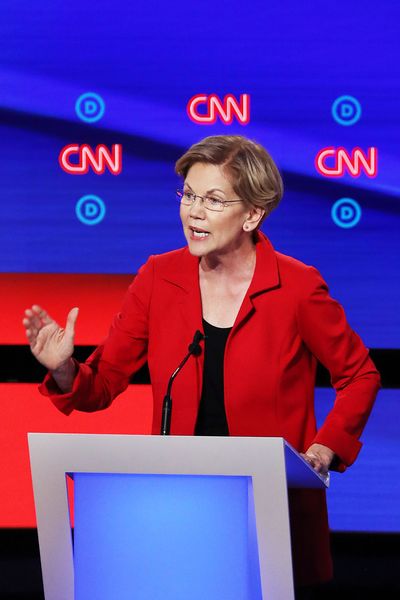
Senator Warren at during the debate on Tuesday, July 30.
“I’ve followed her for a long time, watching her in congressional hearings. She listens, but when she talks she’s prepared and can back up what she says with data and the big picture context of why it matters. I can’t argue with that.”
The night before, at a Warren watch party across town, one woman, Lina, told me that she was torn between Massachusetts Senator Elizabeth Warren and Harris. “She’s just awesome,” Lina said of Warren. “She’s super sharp, she knows her stuff. I think she and Harris would both be good against Trump.” That’s something you can be now: torn between two viable female candidates...or more.
As things got more heated on Wednesday night, Smith and Bailey were sympathetic. “She seems irritated, but not flustered,” said Smith of Harris, “which I would be too, I appreciate that. She’s not a robot. She has the passion to defend her record.”
“They’re most threatened by her,” Bailey added, as we took a breather outside the bar. “She’s the one to beat.” Not the woman to beat, just the one.
For more stories like this, including celebrity news, beauty and fashion advice, savvy political commentary, and fascinating features, sign up for the Marie Claire newsletter.
MORE ON THE DEMOCRATIC PRESIDENTIAL PRIMARY
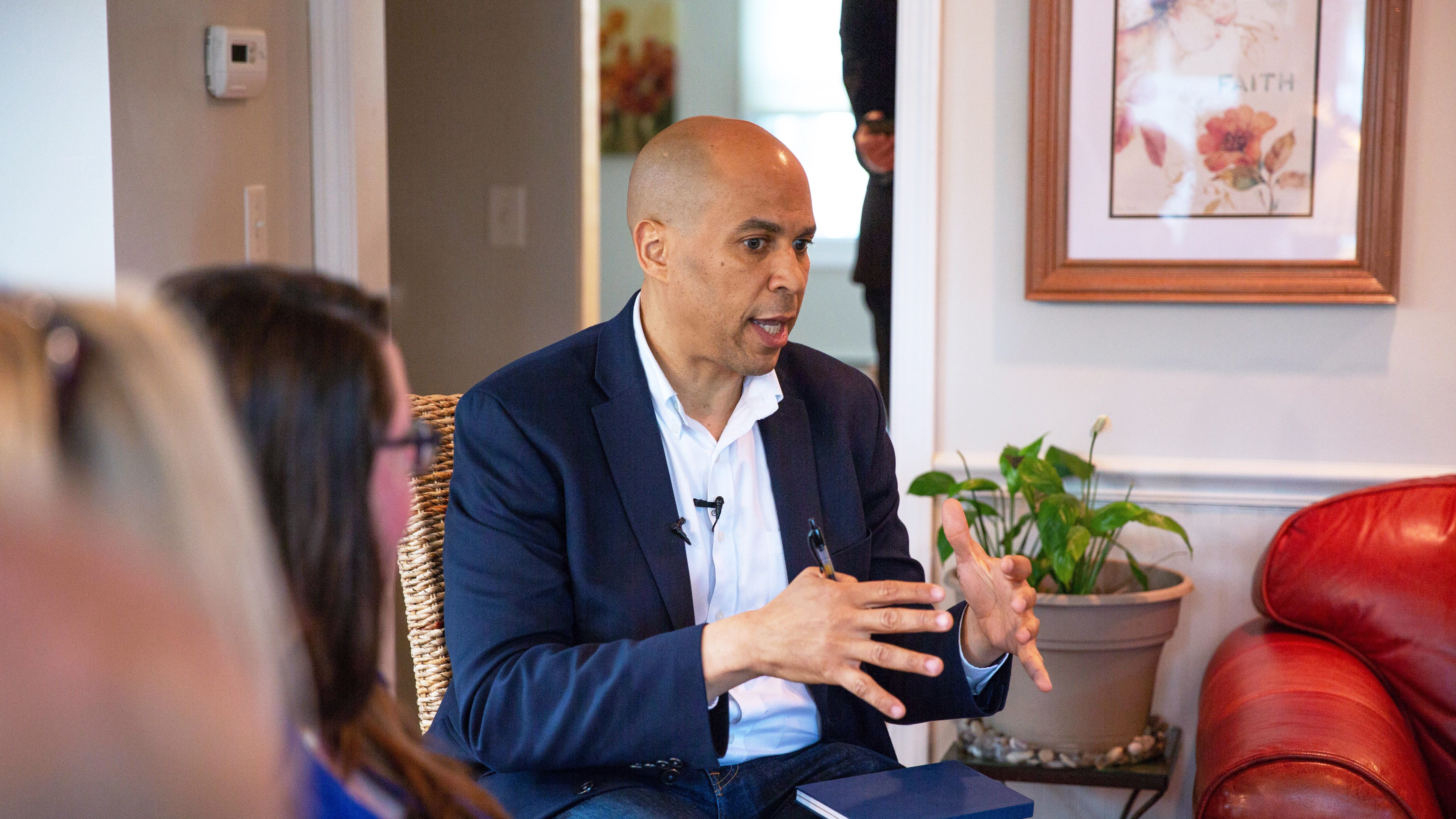
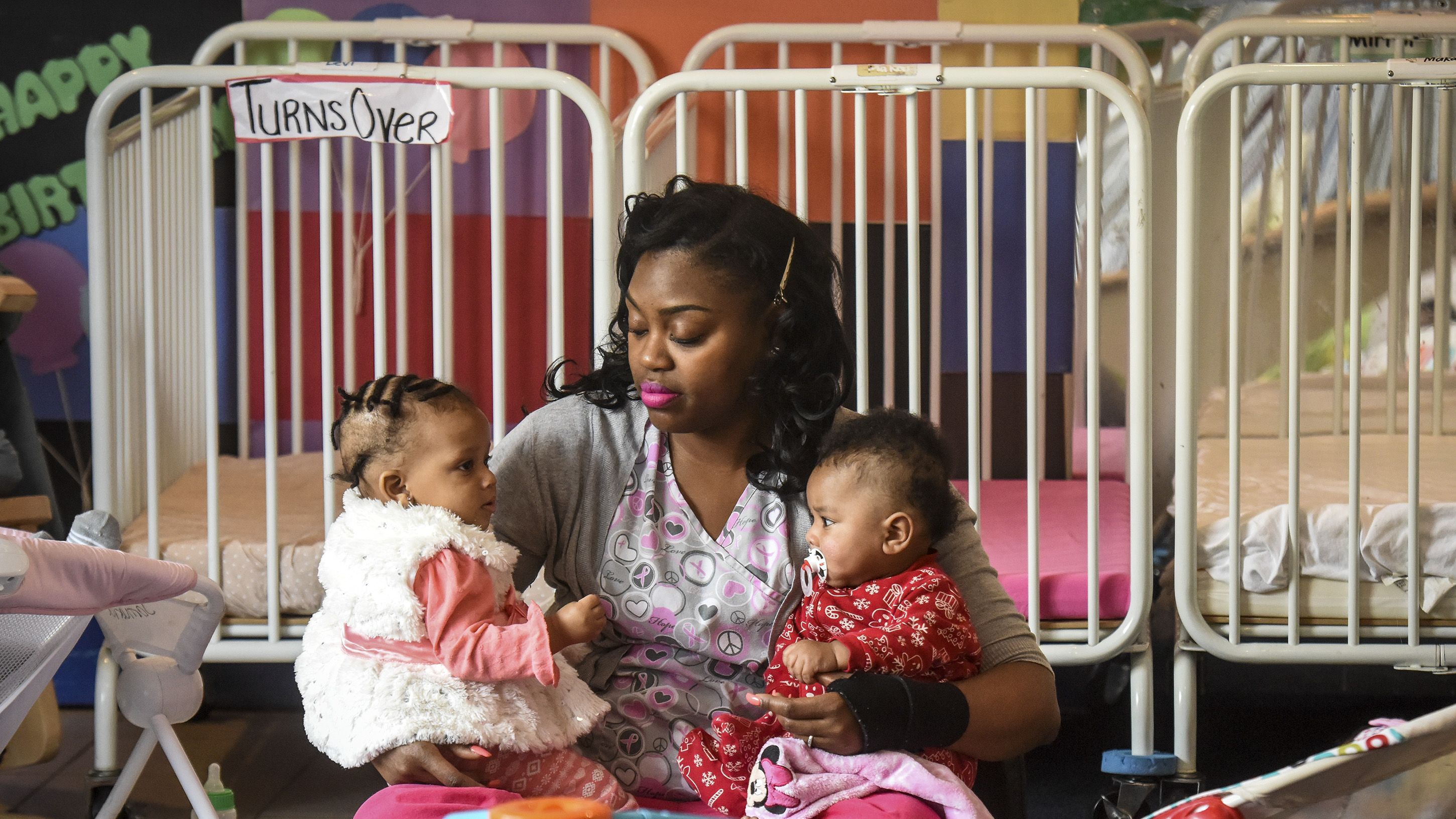
Chloe Angyal is a journalist who lives in Iowa; she is the former Deputy Opinion Editor at HuffPost and a former Senior Editor at Feministing. She has written about politics and popular culture for The New York Times, The Washington Post, The Atlantic, The Guardian, New York magazine, Reuters, and The New Republic. Angyal has a Ph.D. in Arts and Media from the University of New South Wales.
-
 Princess Anne's Unexpected Suggestion About Mike Tindall's Nose
Princess Anne's Unexpected Suggestion About Mike Tindall's Nose"Princess Anne asked me if I'd have the surgery."
By Amy Mackelden Published
-
 Queen Elizabeth's "Disapproving" Royal Wedding Comment
Queen Elizabeth's "Disapproving" Royal Wedding CommentShe reportedly had lots of nice things to say, too.
By Amy Mackelden Published
-
 Palace Employees "Tried" to Get King Charles to "Slow Down"
Palace Employees "Tried" to Get King Charles to "Slow Down""Now he wants to do more and more and more. That's the problem."
By Amy Mackelden Published
-
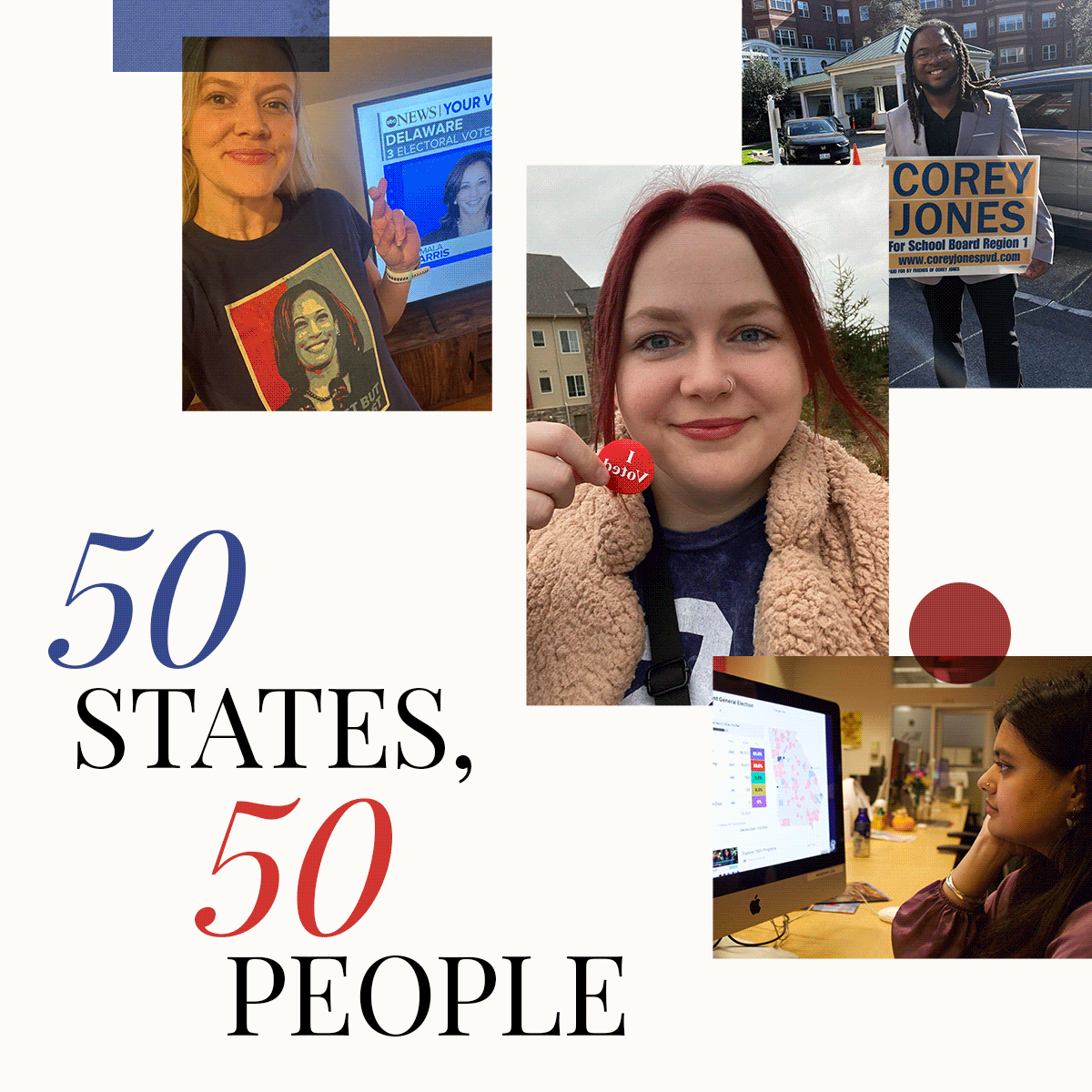 A Nationwide Reaction to the 2024 Election
A Nationwide Reaction to the 2024 ElectionHow are people feeling in this moment? Marie Claire spoke to folks across the country to find out what they were thinking as they cast their votes and waited to hear the results.
By The Editors Published
-
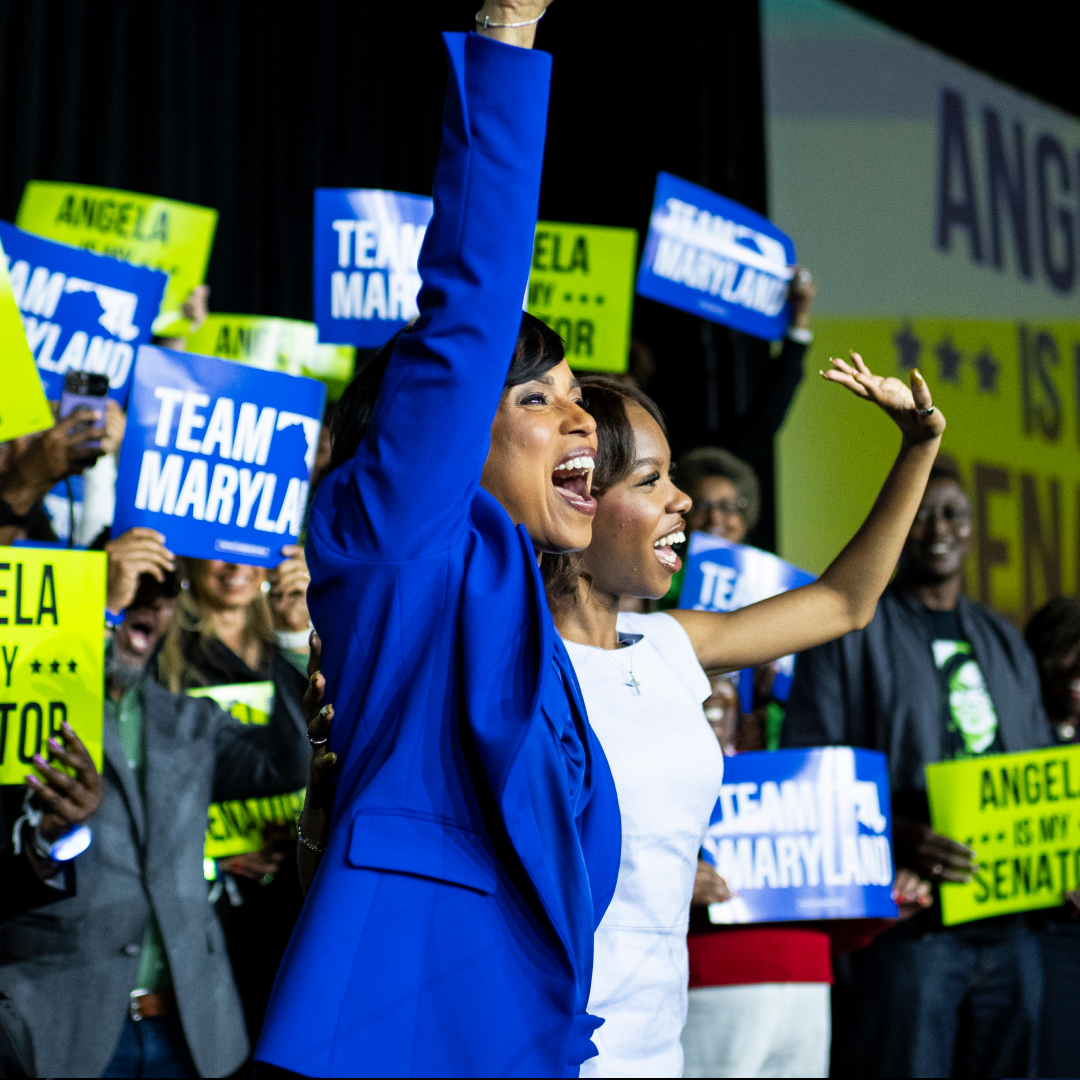 The Historic Election Victories Worth Celebrating
The Historic Election Victories Worth CelebratingIncluding momentous firsts, abortion protections, and New York's "Equal Rights Amendment."
By Iris Goldsztajn Published
-
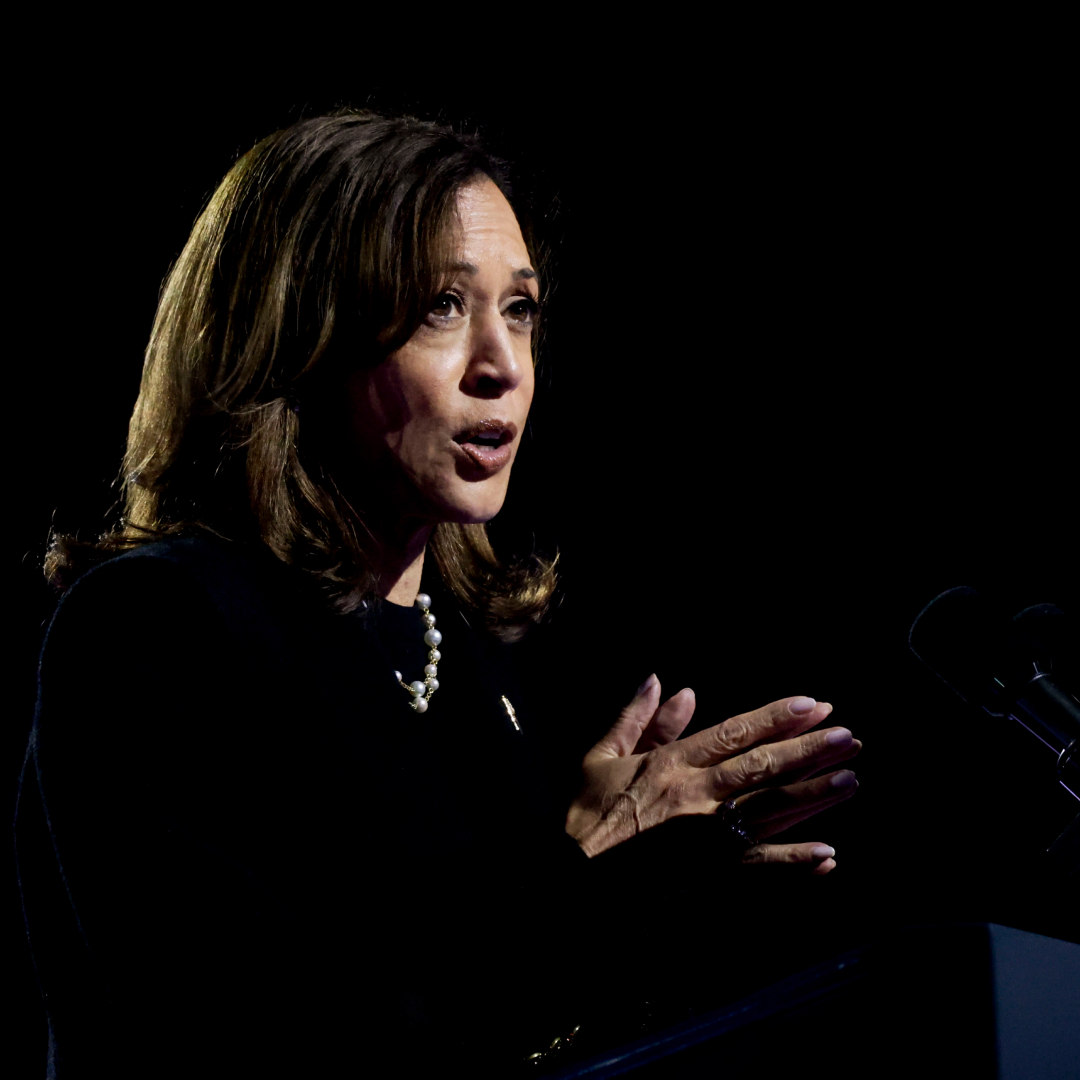 Kamala Harris Has Lost the 2024 Presidential Election
Kamala Harris Has Lost the 2024 Presidential ElectionIt's official.
By Jenny Hollander Published
-
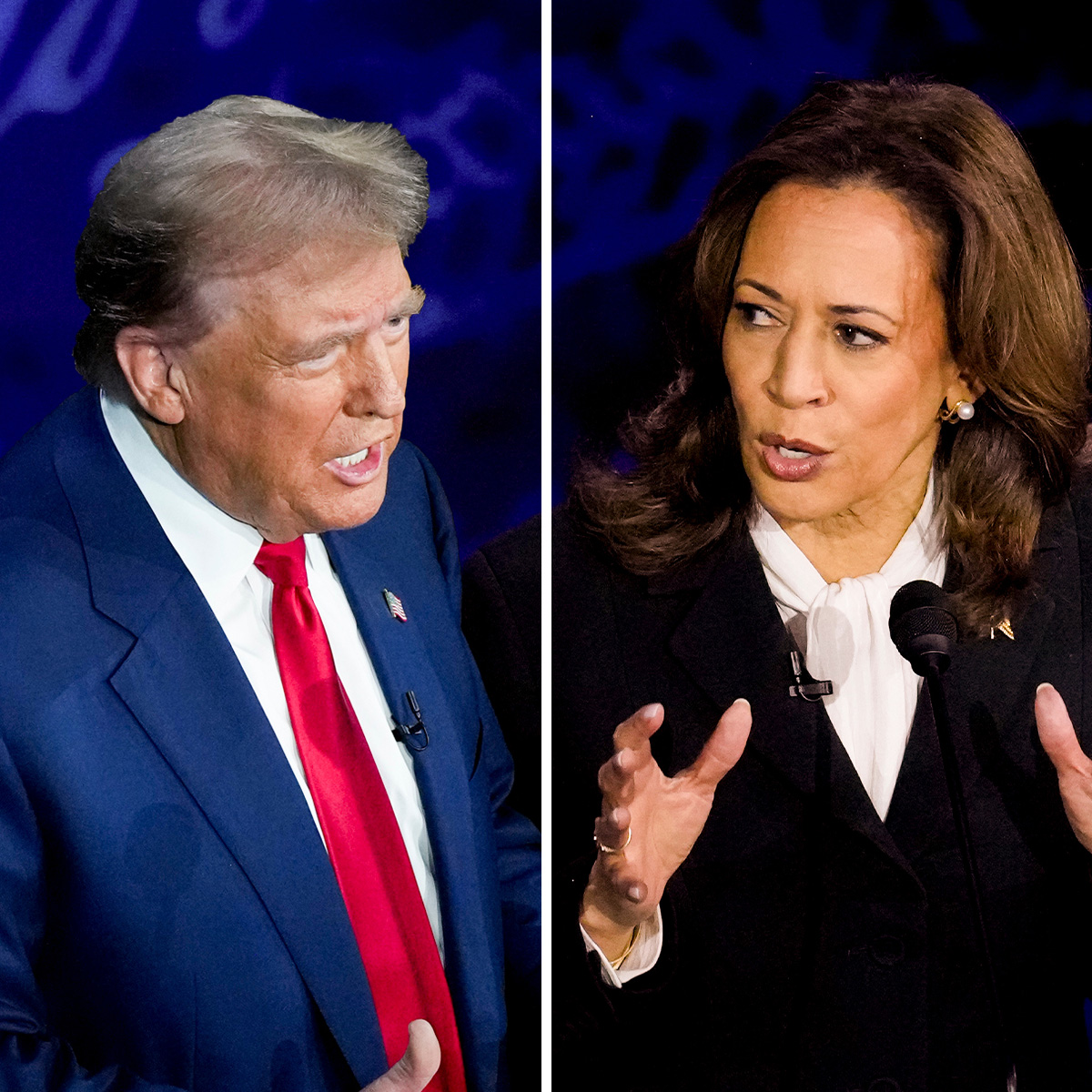 Trump Has Been Getting More Erratic on Abortion—Kamala Harris Finally Called Him Out
Trump Has Been Getting More Erratic on Abortion—Kamala Harris Finally Called Him OutThe entire energy of Tuesday night's presidential debate shifted when the two candidates had a heated exchange about abortion rights.
By Lorena O'Neil Published
-
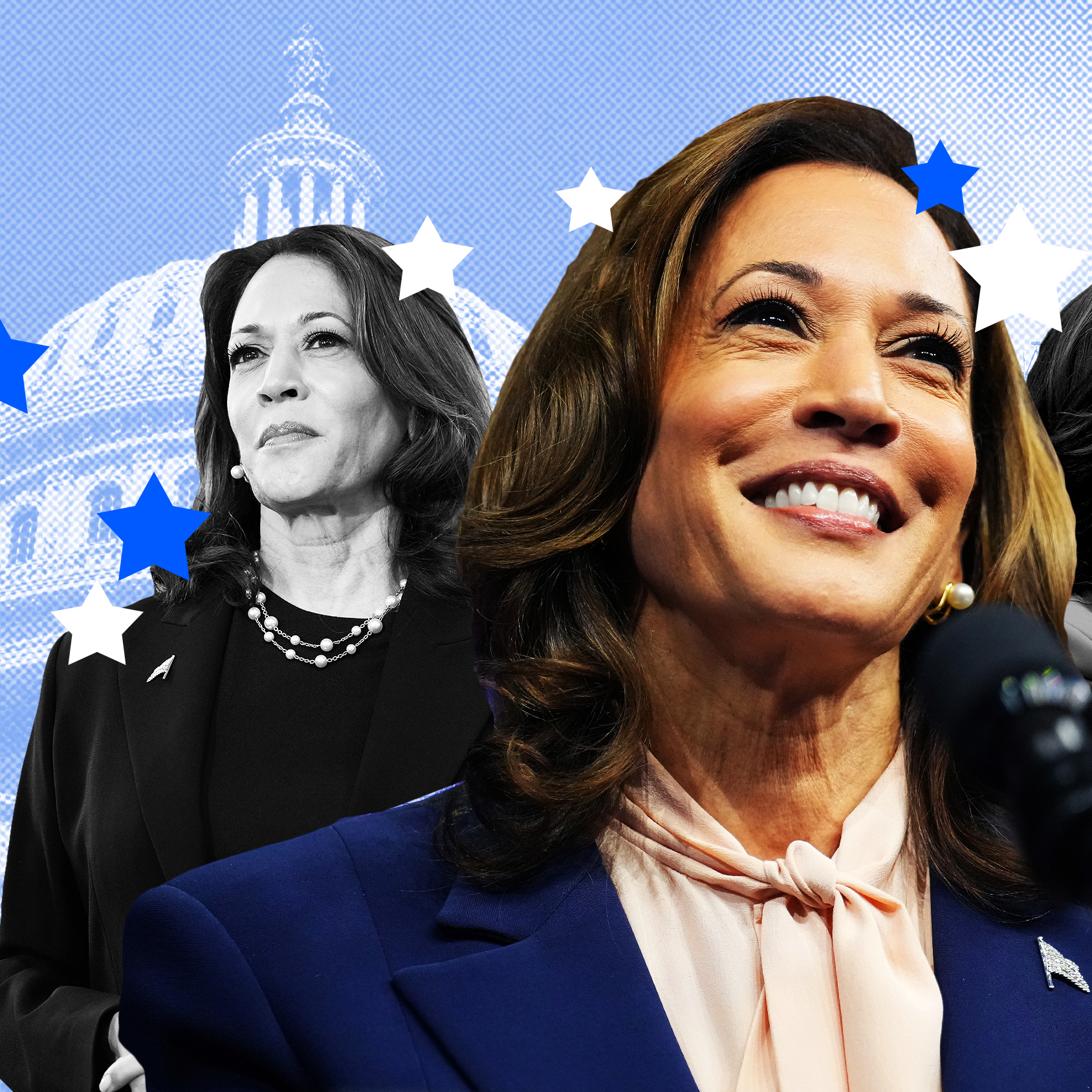 The Power and Promise of Kamala Harris
The Power and Promise of Kamala Harris"The stakes in this election couldn’t be clearer. And Vice President Harris has given us reason to hope—a deep and abiding hope that is less about wishing and more about working."
By Ayanna Pressley Published
-
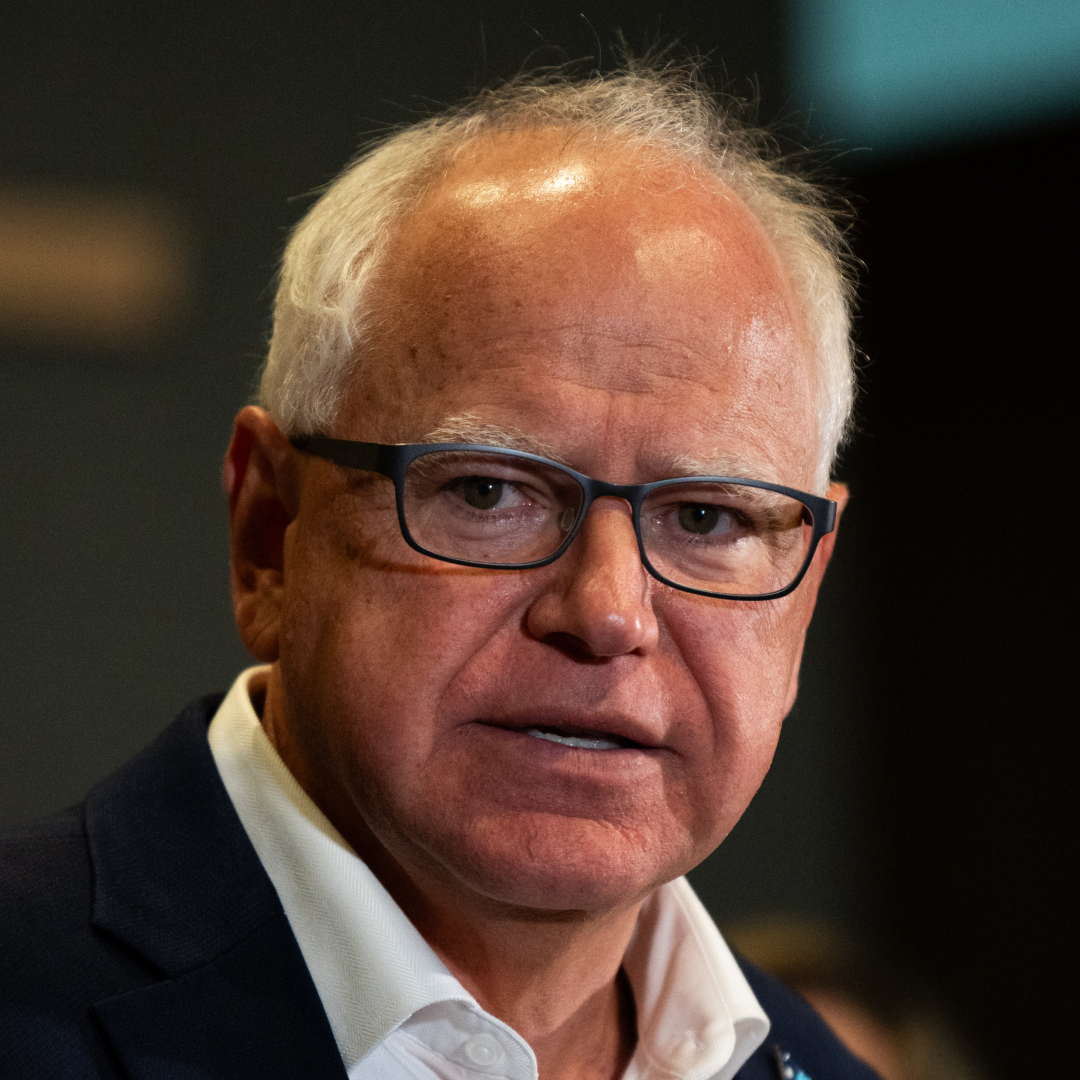 Who Is Tim Walz, Kamala Harris' Pick for Vice President?
Who Is Tim Walz, Kamala Harris' Pick for Vice President?The current governor of Minnesota recently called the Trump-Vance ticket "weird."
By Amy Mackelden Published
-
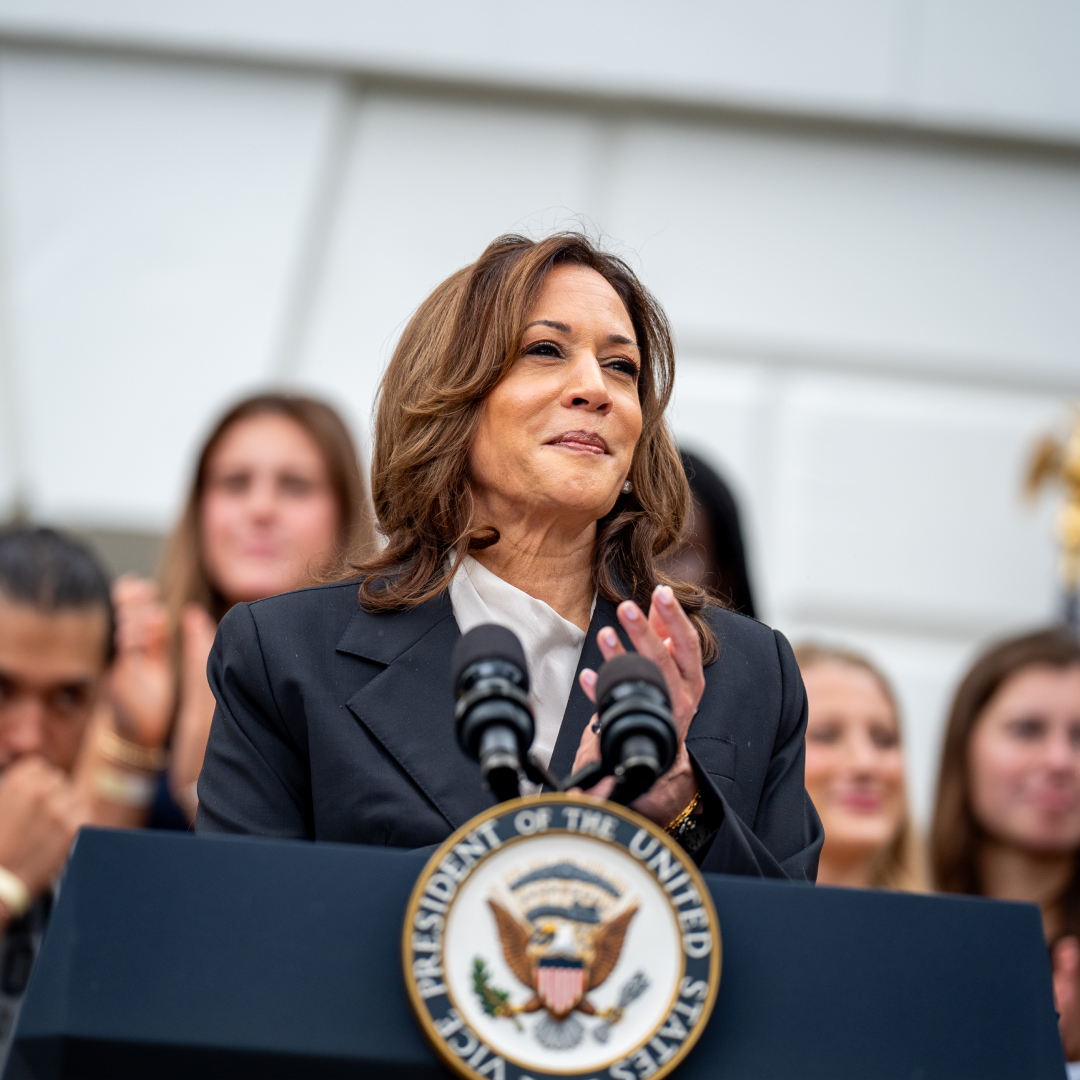 Most Republicans Aren't Talking About Gender and Race. Here's Why Kamala Harris Should
Most Republicans Aren't Talking About Gender and Race. Here's Why Kamala Harris ShouldThe GOP knows that if this becomes a campaign about identity, they’re going to lose.
By Reshma Saujani Published
-
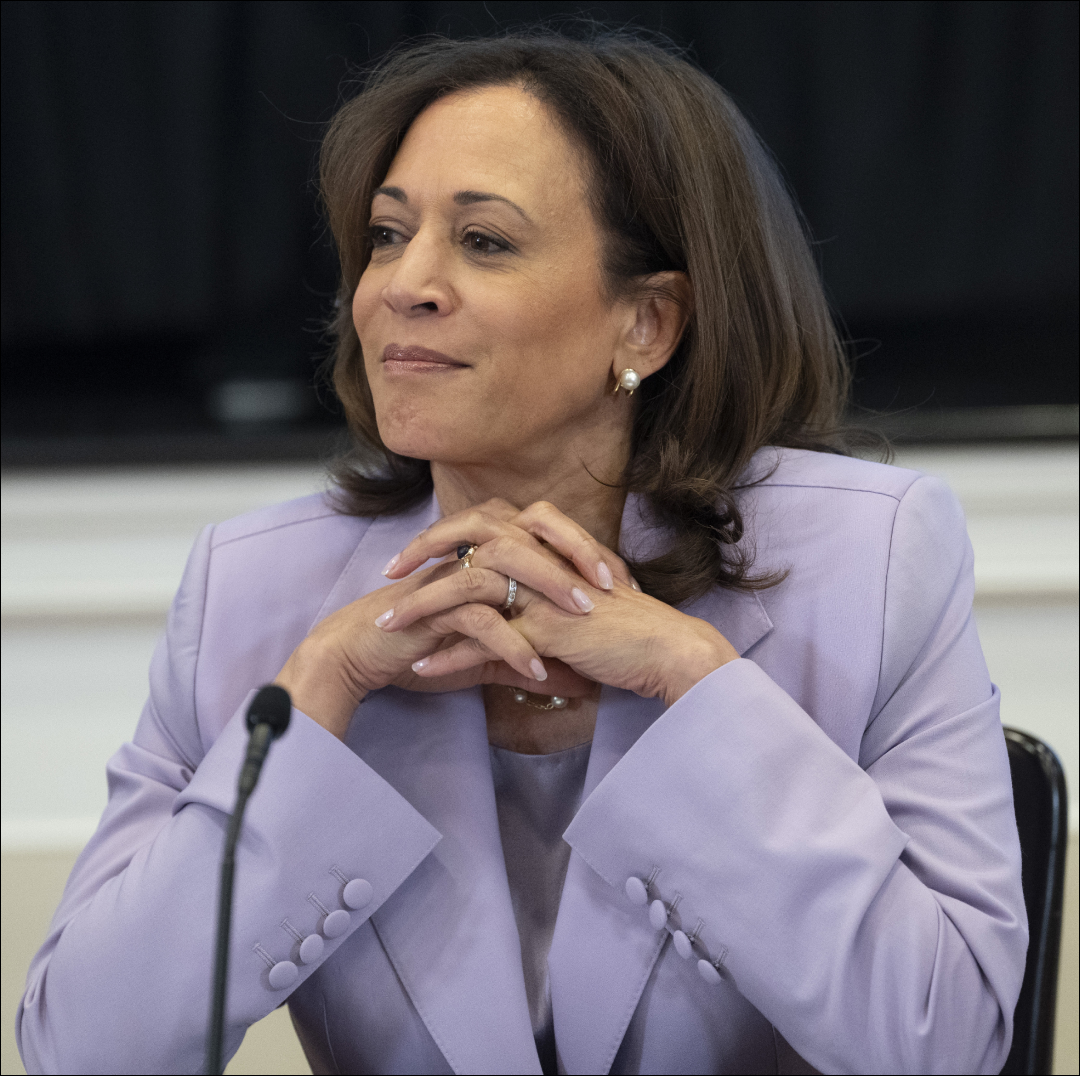 Vice President Harris Announces New Rules to Lower Childcare Costs
Vice President Harris Announces New Rules to Lower Childcare CostsHere's what you need to know about the Biden administration's latest efforts to make childcare more affordable.
By Emily Tisch Sussman Published